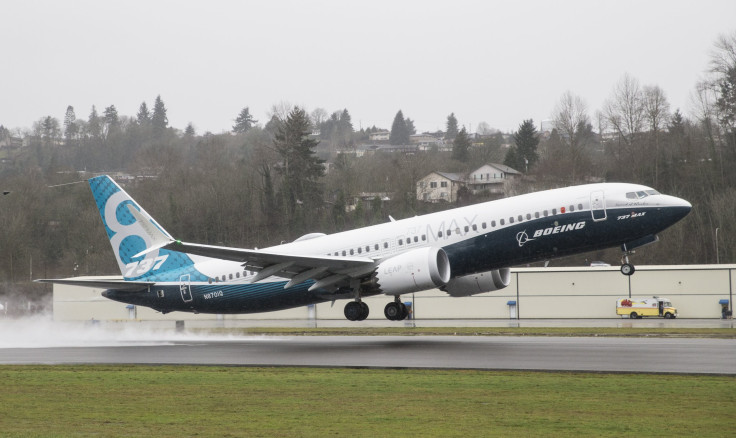Alaska Airlines Isn't Worried About The Boeing 737 MAX
Airlines that were near the beginning of the line to receive Boeing (NYSE:BA) 737 MAX jets have been feeling a lot of pain this year. The troubled model has been grounded worldwide since mid-March, forcing 737 MAX operators to cancel dozens or even hundreds of flights a day. And while Boeing hopes to get its most important product back in the sky within the next few months, there's still no clear timeline for a return to service.
Nevertheless, management at Alaska Air (NYSE:ALK) isn't worried about any ill effects from the Boeing 737 MAX grounding. In fact, there's growing evidence that the company could be planning to double down on the 737 MAX once the grounding is lifted.
Alaska Airlines dodged a bullet
As recently as mid-2016, Alaska Airlines planned to add the 737 MAX to its fleet beginning in late 2017. However, due to a desire to minimize complexity as it worked to integrate Virgin America, a smaller rival it acquired in late 2016, Alaska later deferred its first 737 MAX delivery to 2018 -- and then to 2019.
These deferrals had nothing to do with safety concerns. Yet the fortuitous result was that Alaska Airlines didn't have a single Boeing 737 MAX in its fleet when regulators grounded the type back in March. Thus, it hasn't had to cancel flights because of the grounding.
Alaska Airlines was scheduled to receive three 737 MAX 9s in the second half of 2019. Based on current conditions, it expects to receive just one this year, with the others arriving in early 2020. These delivery delays won't impact its operations, though, given that Alaska has nearly 240 planes in its mainline fleet. The carrier has received several new 737-900ERs and A321neos this year, which have been sufficient to support its modest 2019 growth plans.

Management seems confident in the Boeing 737 MAX
While the timeline for recertifying the 737 MAX has shifted several times, Alaska Airlines isn't hedging against further delays. (Some media outlets have tied the airline's decision to put some older Q400 turboprops back into service to the 737 MAX grounding, but that was a separate decision related to Alaska's need to defend its home turf in the Pacific Northwest.)
For example, during the company's earnings call last month, CFO Brandon Pedersen said that Alaska would go ahead with plans to return three Airbus jets with expiring leases to the lessors between now and the end of 2020. That wouldn't make sense if management were worried about additional major delays for the 737 MAX.
Furthermore, Alaska Airlines appears to have accelerated some 737 MAX deliveries scheduled for later years into 2020. As of the end of March, its fleet plan called for having 168 Boeing 737 passenger jets (including older models as well as the MAX) by the end of next year. Now the carrier expects to have 173 Boeing 737s by then.
Is a big Boeing 737 MAX order coming?
Earlier this year, I suggested that the Boeing 737 MAX's current troubles could actually make it more likely that Alaska Airlines will choose to become an all-Boeing 737 airline again. The vast majority of the Airbus planes it inherited from Virgin America are leased, and nearly all of those leases expire by 2025. This would make it straightforward to phase out those planes. Meanwhile, Boeing will be very motivated to bring in new 737 MAX orders later this year to shore up its backlog.
Alaska's decision not to extend the three A319 and A320 leases that were expiring in late 2019 and 2020 is another hint that management is leaning toward the all-Boeing option. Additionally, the carrier deferred its first scheduled A320neo delivery by another year during the first quarter. At the time of the Virgin America acquisition, the carrier's first A320neo was scheduled to arrive in 2020. That date has now shifted to 2023 -- and Alaska Airlines frequently notes that the penalty for canceling the order would be minimal.
Thus, the Boeing 737 MAX's woes haven't hurt Alaska Airlines in 2019, due to the carrier's decision to defer its deliveries by nearly two years compared to its original plan. Moreover, if Boeing's desperation enables Alaska to get a great deal on a 737 MAX order later this year, the grounding could wind up being a huge long-term positive for the Seattle-based airline.
Adam Levine-Weinberg owns shares of Alaska Air Group. The Motley Fool recommends Alaska Air Group. The Motley Fool has a disclosure policy.
This article originally appeared in The Motley Fool.




















